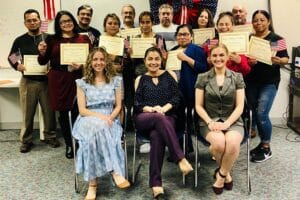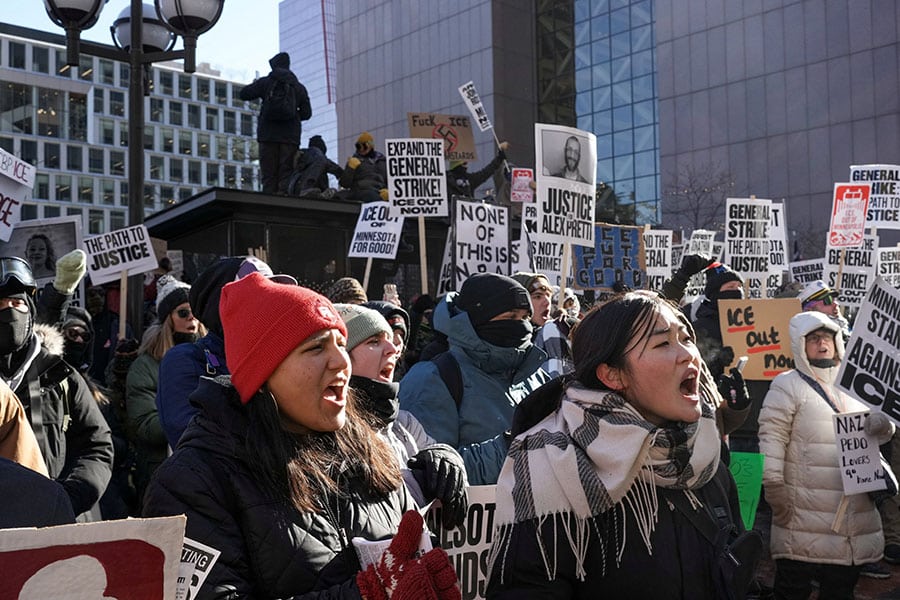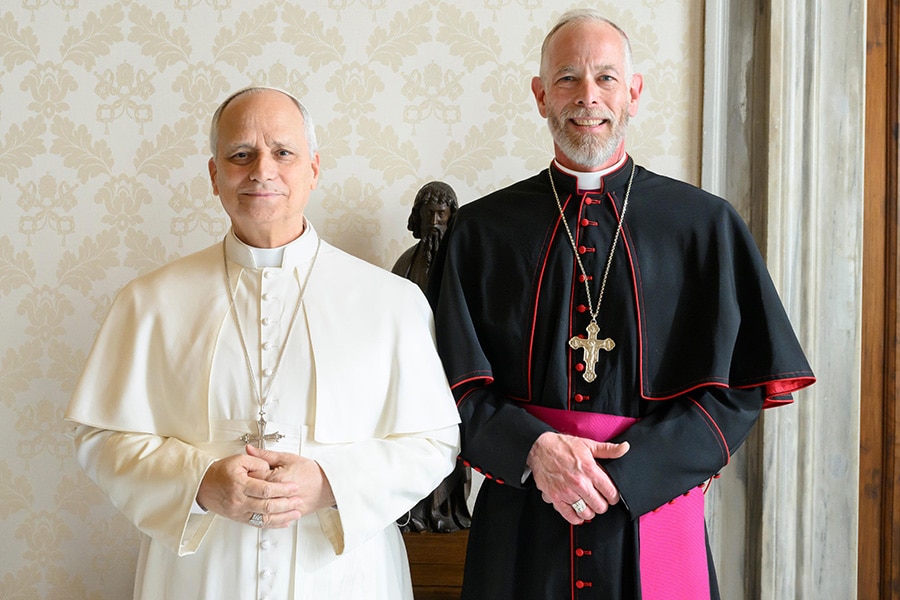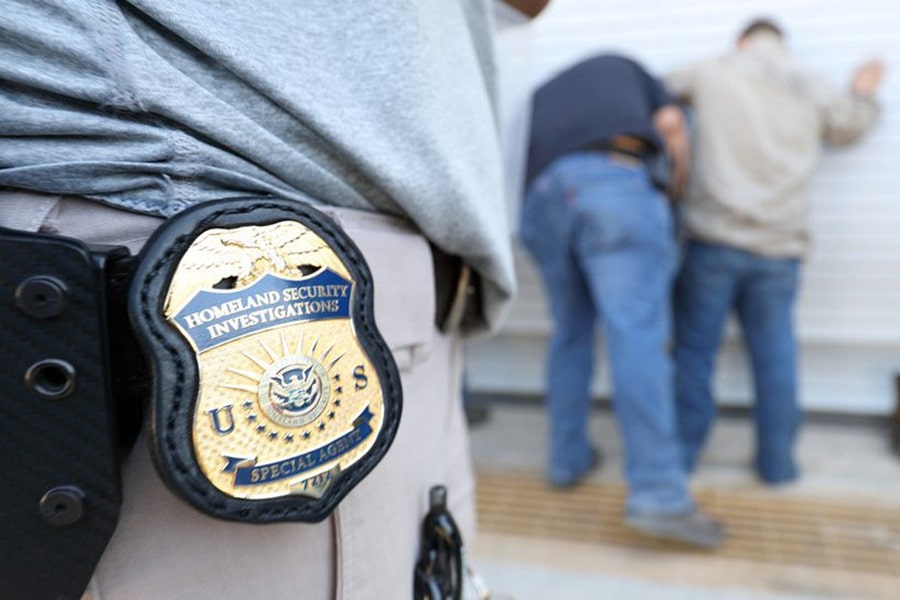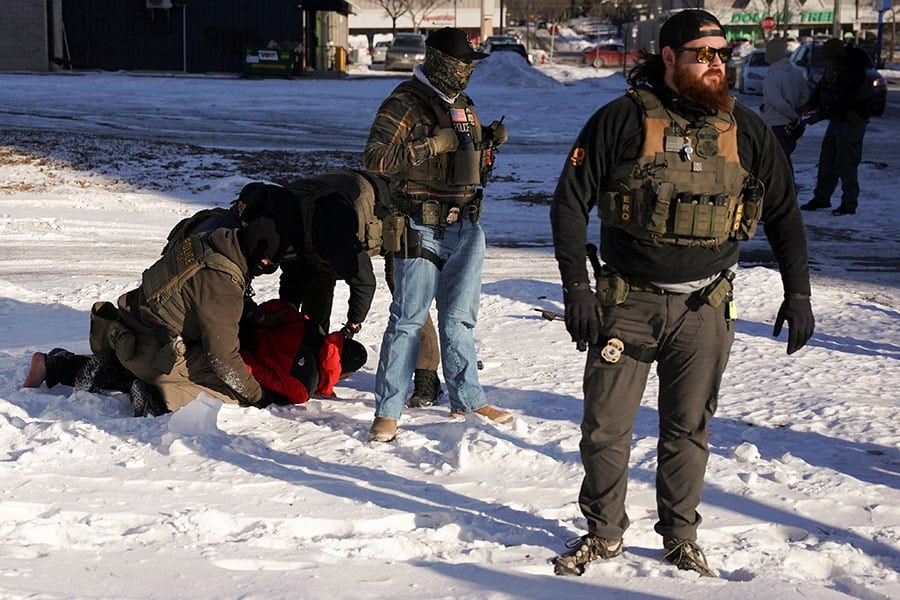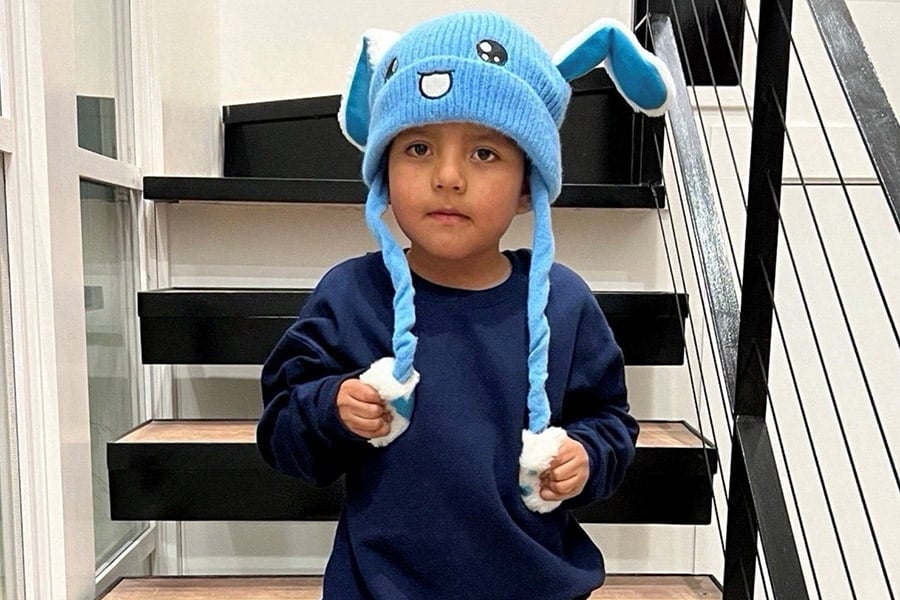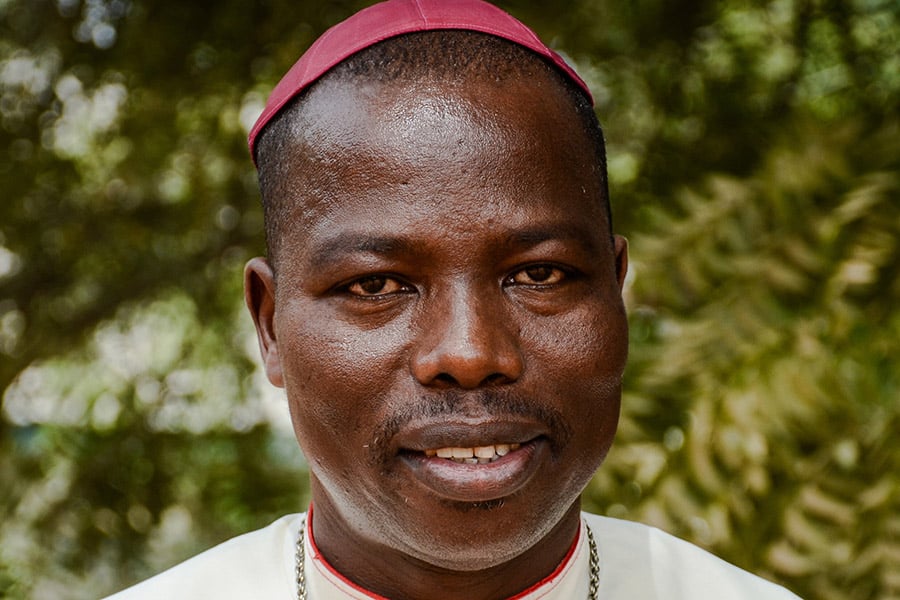FORT WAYNE, Ind. (OSV News) — In his general audience Aug. 28, 2024, unprompted by any specific news event, Pope Francis clearly and unapologetically reinforced what he’s preached throughout his pontificate about the Christian call to welcome migrants and refugees.
In crossing seas and deserts to seek safety and prosperity, he said: “God is there with them, with the migrants; he suffers with them, with the migrants. He weeps and hopes with them, with the migrants. It will be good for us today to think: The Lord is with our migrants … not with those who repel them.”
For the past 50 years, officials with Catholic Charities of the Diocese of Fort Wayne-South Bend have been helping refugees vetted and approved by the federal government flee lives filled with fear and persecution and resettle in the United States, where they are able to pursue a life filled with security and opportunity for themselves and their families.
Recently, several executive orders signed by President Donald Trump have hampered the work being done by the men and women of Catholic Charities and caused fear among the immigrant communities in northeast Indiana.
To help give clarity to the work Catholic Charities does in assisting migrants and refugees in the area, Today’s Catholic, newspaper of the Diocese of Fort Wayne-South Bend, spoke to Luz Ostrognai, director of Catholic Charities’ immigration services program. Ostrognai, a native of Colombia, has been practicing immigration law in Fort Wayne since 2003. The interview has been edited for clarity.
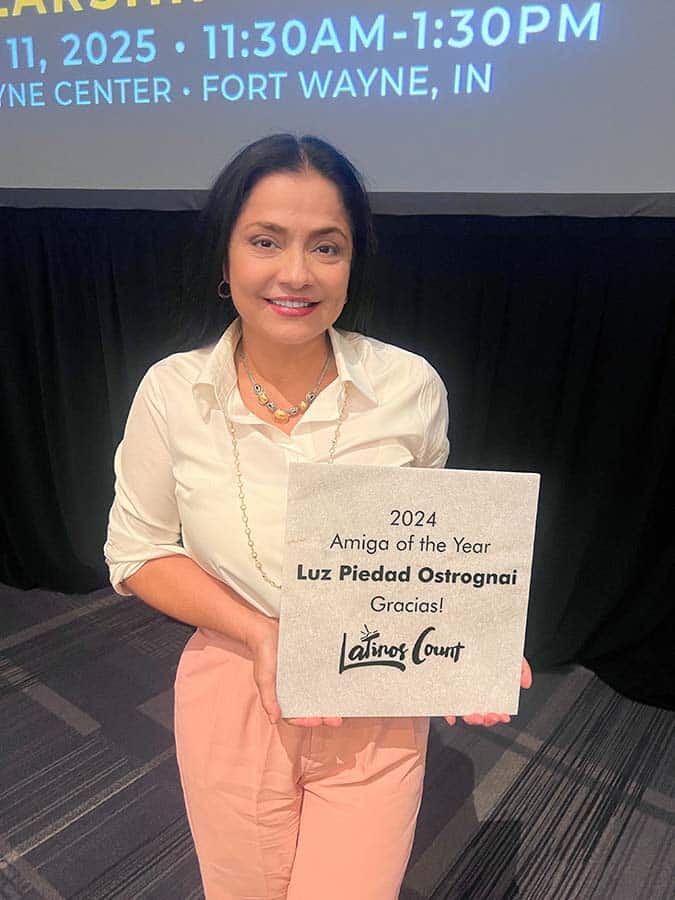
Today’s Catholic: Can you give readers a little background about yourself and explain a little about the work you do at Catholic Charities?
Luz Ostrognai: I began my journey at Catholic Charities in 2001 as a case manager. By 2005, I became a (Department of Justice) partially accredited representative, which allowed me to practice immigration law before the Department of Homeland Security. With a background in business administration and a master’s in business management, I began managing the immigration program in 2005. I served as the immigration supervisor for more than 18 years before transitioning to my current role as director of the Immigration Services Department in 2022. I am now a fully accredited representative, which grants me the authority to represent clients in all immigration matters.
With a fully accredited representative and two partially accredited representatives, Catholic Charities is able to provide immigrants with low-cost, reliable, and competent legal counsel, reducing the risk of exploitation by predatory, unlicensed providers. Our services primarily focus on humanitarian aid, helping immigrants adjust their status, reunite with family, obtain employment authorization and prepare for naturalization.
Today’s Catholic: Because of the politicization of immigration in the U.S., I think it might be helpful to identify commonly used terms from a legal perspective. What are the differences between migrants, immigrants, refugees and asylum-seekers? What does it mean to be an illegal immigrant? What does “undocumented” mean?
Ostrognai: Migrant — Migration is the movement of people away from their usual place of residence to a new place of residence, either across an international border or within their own country. The migration may be temporary or permanent, and may take place for a variety of reasons, such as work, education, or living conditions.
Immigrants — An immigrant is someone who makes a conscious decision to leave his or her home and move to a foreign country with the intention of settling there. Immigrants often go through a lengthy vetting process to immigrate to a new country. Many become lawful permanent residents and eventually citizens. Immigrants research their destinations, explore employment opportunities, and study the language of the country where they plan to live. Most importantly, they are free to return home whenever they choose.
Refugees — Unlike migrants or immigrants, a refugee is someone who has been forced to flee his or her country because of persecution, war or violence. A refugee has a documented fear of persecution for reasons of race, religion, nationality, political opinion or membership in a particular social group. Most likely, they cannot return home or are afraid to do so. War, due to ethnic, tribal and religious violence is the leading cause of refugees fleeing their countries. Those who obtain refugee status are given protections under international laws, as well as conventions and lifesaving support from aid agencies. Upon arrival, they are granted refugee status, which allows them to live and work in the U.S. legally. After one year, they are eligible to apply for a green card and become lawful permanent residents. After four years of permanent residency, if they meet the requirements, they may go through the naturalization process to become U.S. citizens.
Asylum-seekers — An asylum-seeker is someone who is also seeking international protection from dangers in his or her home country but whose claim for refugee status hasn’t yet been determined legally.?Asylum-seekers must apply for protection in the country of destination, meaning they must arrive at or cross a border in order to apply. An asylum-seeker must demonstrate that his or her fear of persecution in his or her home country is well-founded. Then, they must be able to prove to the authorities they meet the criteria to be covered by refugee protection. Not every asylum-seeker will be recognized as a refugee. If refugee status is not granted, they may be forced to return to their home country.
Tens of thousands of children and families from Central America have fled extreme danger –- murder, kidnapping, violence against women and forced recruitment by gangs — and are seeking asylum in the U.S. Those being legally processed at the U.S. border are being depicted as “illegal immigrants,” but crossing the U.S. border at a legal port of entry and seeking asylum is not illegal; the asylum-seeker’s case must be heard before a fair and impartial tribunal, according to U.S. and international law.
Undocumented/illegal aliens — Legal immigrants are foreign-born people legally admitted into the U.S. Undocumented immigrants, also called illegal aliens, are foreign-born people who do not possess a valid visa or other immigration documentation because they entered the U.S. without inspection, stayed longer than their temporary visa permitted or otherwise violated the terms under which they were admitted.
Today’s Catholic: Can you explain the role that Catholic Charities of Fort Wayne-South Bend plays in resettling migrants and refugees, and also, how are these men, women and children chosen to receive such services?
Ostrognai: Catholic Charities of the Diocese of Fort Wayne-South Bend (CCFWSB) has been resettling refugees since the fall of South Vietnam in 1975 and has participated in the United States Refugee Admissions Program (USRAP) since 1980. USRAP enables fully vetted individuals to seek refugee status. Both the United States government and the United Nations Refugee?Agency determines whether a person seeking international protection meets the definition of a refugee and is allowed to enter the United States. Throughout the past two years, the number of refugees arriving under USRAP has averaged 80,000, but it fluctuates from administration to administration.
The primary outcomes of the USRAP are economic self-sufficiency and community integration. This program allows refugee families to enter the U.S. legally and receive intensive case management support, including assistance with obtaining housing, cultural integration, health care access, ESL classes, and job readiness. The CCFWSB Immigration Services Department is responsible for supporting refugees as they adjust their status to become lawful permanent residents and, potentially, U.S. citizens. Our doors are open for any refugee or immigrant who needs legal consultation for their individual circumstances. Following the letter of the law, we assist clients on preparing their case that is submitted to the U.S. Citizenship and Immigration Services (USCIS), the agency that ultimately makes the legal decision. These services include adjustment of status, family petitions, citizenship and naturalization, temporary protected status, DACA and fiancé petitions amongst many other services authorized by the U.S. Citizenship and Immigration Services.
Today’s Catholic: Deportations have been on the rise for the past several decades but have gone up significantly since the COVID-19 pandemic. While the Biden administration deported significantly more people than the first Trump administration, it seems that with Trump’s recent executive orders, the rhetoric and fear surrounding immigrants and refugees has skyrocketed. What have you seen among the clients you serve regarding their fear of being deported? Can you give specific examples? Is their fear justified if they are in the United States legally?
Ostrognai: The bulk of deportations under the Biden administration occurred primarily at the border. The focus, especially following the COVID-19 pandemic and concerns of public health issues, was keeping individuals who were not already in the country out. This resulted in increased deportations of individuals ascertained crossing the border and being turned away at ports of entry. In contrast, the recent executive orders issued by the current administration are focused on illegal criminals and those with active deportation orders who are living in the country. The fear of deportation for individuals with established networks, jobs, backgrounds, and American children and spouses has increased significantly because of the current atmosphere. In addition, it is understandable that we would see an increase in justified fear among individuals in this position because they have so much more to lose versus those who recently entered the U.S. If they are deported, they do not just lose entry to the U.S., they are separated from their families, their jobs, and oftentimes their entire community.
A specific example, for reference: Officials with CCFWSB recently completed a consultation with an individual in her late 20s. She has lived in the U.S. since the age of 2, having been brought here as a toddler by her father in the early 2000s.?She has no criminal background, but was not able to apply for DACA before registration was closed. She is considered undocumented, and no avenue currently exists for her to seek legal status. She is a single mother who escaped an abusive relationship. Her three children are U.S. citizens. She has no memory of Mexico. Under the Biden administration, although she was not documented and could theoretically have been deported, she was not considered to be at high risk because the bulk of the enforcement was occurring at the border. Unless she was arrested for a criminal offense, it was unlikely ICE would waste resources seeking her out and deporting her. Given the current administration’s policies and enforcement activity, her risk of deportation appears to be higher.
The majority of individuals fearing deportation are those who are not documented, as those who are here “legally” are not at risk of deportation unless they were to commit a felony or lose their legal status. However, it is worth noting that individuals who are documented with certain types of legal status are on high alert, as the Trump administration has made several moves to eliminate the status options that many are currently protected by, such as significantly limiting or canceling temporary protected status (TPS), effectively making certain individuals undocumented. We are also seeing changes in policy that are creating problems for legal immigrants, such as increased risks in attempting to travel, as border patrol agents are being given greater discretion in denying re-entry even for individuals who have legal status and appropriate permits to travel.
Today’s Catholic: The Trump administration says it is only looking to deport criminals, but there is some confusion about what this means. Does Catholic Charities consider anyone who doesn’t hold legal authorization to be in the United States a criminal (for example, if a green card or work visa has expired)?
Ostrognai: Physical presence in the United States without proper authorization is a civil violation rather than a criminal offense. This means that the Department of Homeland Security (DHS) can place a person in removal (deportation) proceedings and can require payment of a fine, but the federal government cannot charge the person with a criminal offense unless they have previously been ordered deported and reentered in violation of that deportation order. Likewise, a person who enters the United States on a valid visa and stays longer than permitted may be put in removal proceedings but cannot face federal criminal charges based solely on this civil infraction. Those who reenter the United States without permission, however, can face criminal charges.
DHS has attempted to prioritize enforcement of individuals with a criminal history and those that may be considered a risk to either public or national safety. If deportation activity is expanded to include all undocumented individuals, including law-abiding, tax-paying individuals who contribute to the good of their communities, regardless of their length of residency and family composition, I’m concerned about the humanitarian and social impact this would have in our communities.
Today’s Catholic: How is Catholic Charities helping those they serve know their rights regarding their immigration/refugee status?
Ostrognai: Undocumented individuals in the U.S. have certain constitutional rights and protections, even though they do not have legal immigration status. Catholic Charities is currently offering a series of “Know Your Rights” presentations with the support and assistance of many of our local parishes and pastors.?These events are designed to inform undocumented individuals of those rights and protections, which include: the right to due process and equal protection, the right to legal representation, and the right of protection against self-incrimination, to name a few. The sessions also inform attendees of what documents to provide to law enforcement to prove their legal status, or a pending application for legal status, and to help them understand how to properly prepare for the well-being of their family if they are detained.?These precautions include ensuring that their estates are in order and that they have arranged for legal necessities such as planning to provide power of attorney to a trusted individual to ensure their American children or elderly family members are cared for if they are deported.
For those we serve, Catholic Charities’ Legal Immigration Services provide legal aid in applying for any legal status options for which they may be eligible, according to the law. We work with each individual case to ensure that they understand their legal status and the rights it gives them as part of the Fifth and 14th Amendments. This advice varies depending on the individual situation of each client.
Today’s Catholic: Christ called us to welcome the stranger. What would you say to those who see these men, women and children as criminals?
Ostrognai: Immigrants and refugees include one of the most vulnerable populations among us. They are often targets for forced labor, sex trafficking, violence from a partner or community member. Our mission is to serve our vulnerable neighbors as Christ calls us to do. At the same time, we respect the laws of this country. Those dual goals should not be at odds with each other. We acknowledge the immigration system is broken, which is why we ask our community to look at the immigrant with compassion, not hatred. The overwhelming majority are hard-working mothers, fathers, brothers, and sisters — many of whom we share the global Catholic pew with on Sunday. We provide humanitarian aid to immigrants because God put them in our diocese, and if we didn’t help them, who would? The immigration issues would just be exacerbated if it wasn’t for agencies like ours, doing their best to provide legal counsel at low cost.
As Catholics, we know every person has an inherent dignity that is not defined by where we are born or our legal status, but by the shared truth that we are all created in the image and likeness of God.
Read More Immigration & Migration
Copyright © 2025 OSV News
